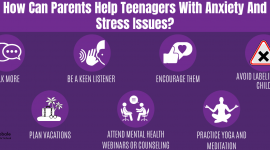Effective communication is at the core of personal, academic, and professional success. Among the many facets of communication, speaking skills are arguably the most immediate and influential.
This article delves into why speaking skills are vital and importance of speaking skills , the benefits they offer, and strategies to enhance these skills for real-world success.
🎙️Understanding Speaking Skills

Speaking skills encompass the ability to express ideas clearly, engage in meaningful dialogue, and convey messages with confidence and clarity. These skills are not just about the act of talking; they involve:
-
Clarity and Articulation: Choosing the right words and speaking at a pace that aids understanding.
-
Non-verbal Communication: Using body language, facial expressions, and eye contact to reinforce spoken words.
-
Listening Skills: Engaging in active listening to respond effectively in conversations.
-
Adaptability: Adjusting language, tone, and style based on the audience or context.
-
Persuasion and Influence: Structuring arguments and opinions in a way that persuades or informs listeners.
By honing these facets, individuals can ensure their message not only reaches the audience but also resonates with them.
🗣️The Benefits of Strong Speaking Skills

1. Enhanced Personal Confidence
Developing strong speaking skills builds self-esteem and confidence. Whether in social gatherings or one-on-one situations, the ability to articulate thoughts clearly reduces anxiety and builds a sense of assurance.
2. Academic Success
In educational settings, clear communication is essential. From classroom discussions to presentations and debates, effective speaking enables students to convey their understanding and insights.
3. Professional Growth and Career Advancement
4. Effective Leadership and Team Collaboration
Leaders rely heavily on their ability to communicate visions, goals, and expectations. Well-honed speaking skills enable leaders to motivate teams, build trust, and facilitate transparent communication channels.
5. Building and Maintaining Relationships
💬How Speaking Skills Impact Different Spheres of Life

In the Classroom
Students who are articulate and able to express their ideas effectively tend to excel in academic settings. They find it easier to participate in discussions, ask relevant questions, and engage in peer-to-peer learning.
In the Professional Arena
Professionals often need to present complex information succinctly. From client meetings and project presentations to leadership briefings, the ability to communicate clearly and confidently underpins professional credibility and competence.
In Social and Community Engagement
Beyond structured environments like classrooms and offices, speaking skills are invaluable in everyday social interactions. Whether it’s during community meetings, social gatherings, or public speaking engagements, strong speaking abilities enable individuals to engage more meaningfully with their community, share their stories, and contribute to collective goals.
🎙️Strategies to Enhance Speaking Skills

1. Practice Public Speaking
Take every opportunity to speak in public settings. Join clubs such as Toastmasters or participate in debate forums and community events. Regular practice helps reduce the anxiety associated with public speaking and builds fluency.
2. Seek Constructive Feedback
Feedback from peers, mentors, or coaches can be invaluable. Recording your speeches or presentations and reviewing them to identify areas for improvement can highlight issues with pace, tone, or clarity.
3. Engage in Active Listening
Effective speaking is intertwined with active listening. By fully engaging in conversations, you learn how others communicate, which can inform and improve your own speaking style. Make a conscious effort to listen actively, reflect on feedback, and adjust accordingly.
4. Expand Your Vocabulary
A rich vocabulary allows you to express your thoughts more clearly and persuasively. Reading widely, engaging in varied conversations, and learning new words in context can enhance your ability to speak more effectively.
5. Work on Non-Verbal Cues
Communication is not solely about words. Enhancing non-verbal cues such as eye contact, gestures, and posture can add authority to your spoken words. Practice speaking in front of a mirror or record your sessions to observe your body language.
6. Join Workshops and Courses
Many professional development workshops focus specifically on communication and presentation skills. Enrolling in these courses can provide structured learning, expert guidance, and the chance to interact with individuals seeking to improve similar skills.
🗣️The Role of Speaking Skills in a Digital Age

-
Engaging Your Online Audience: Using interactive elements like questions, polls, or visual aids to maintain the audience’s attention.
-
Clear Audio and Visual Communication: Ensuring that your digital presence is effective by investing time in setup, lighting, and sound.
-
Virtual Body Language: Adapting your non-verbal cues for a digital platform by looking into the camera and using expressive hand gestures within the frame.
These aspects demonstrate that the relevance of speaking skills has evolved, with digital fluency becoming an essential complement to traditional oral communication.
Conclusion
FREQUENTLY ASKED QUESTIONS
Q1: What are speaking skills?
Ans: They are the ability to express ideas clearly using words, tone, and body language.
Q2: Why are speaking skills important?
Ans: They boost confidence, refine leadership, and open career doors through clear, persuasive communication.
Q3: How do speaking skills impact career growth?
Ans: Effective speaking builds trust, aids presentations, and enhances leadership, driving career advancement.
Q4: How do speaking skills benefit personal development?
Ans: They improve self-expression, social interactions, and help build lasting personal relationships.
Q5: How can I improve my speaking skills?
Ans: Practice regularly, join discussion clubs, seek feedback, and engage in active listening to refine your style.









